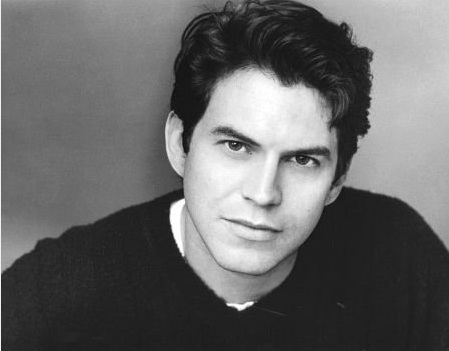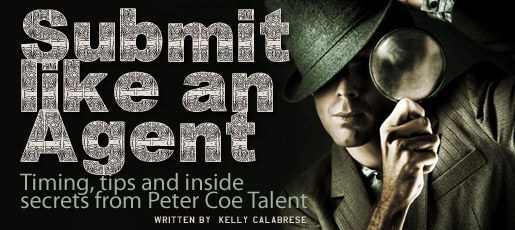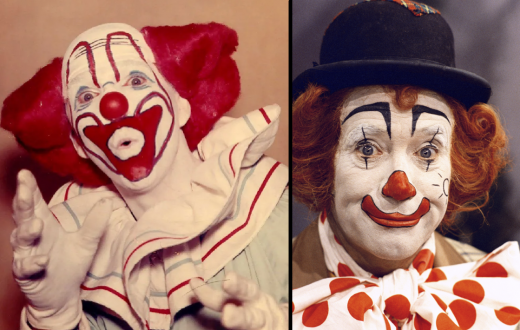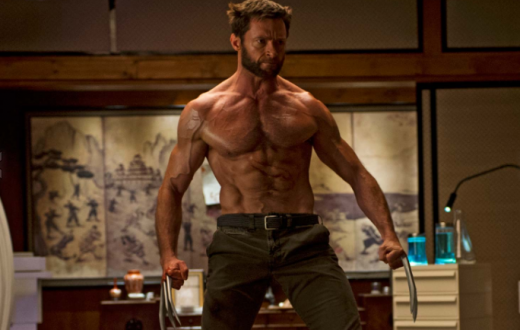Taking the leap from an audition on to a film set can sometimes feel like Indiana Jones diving into the snake pit. But do not fear. Just…
“Think of being on the set as a continuation as the audition process” shares CD Harley Kaplan of Powers/Kaplan. “You got that part because of your confidence, your ability and your geniality in the actual audition. Don’t lose that. Come in the same way. If they have any changes, they will address it to you. But don’t lose your confidence after the audition, because they were happy with you. Never forget that.”
Remembering what got you on set is golden advice, for sure. But what about the protocols beyond your lines? For that, NYCastings and Harley Kaplan bring you… A film set survival guide.
Having worked on all facets of a film set, Harley Kaplan is now one of the two Casting Directors of the newly formed Powers / Kaplan Casting, consisting of Harley Kaplan and Brandon Powers. Prior to Powers/Kaplan Casting, Harley was part of the casting team at PalmStar Entertainment and he worked for New Line Cinema, Hopkins, Smith and Barden, and Jennifer McNamara, working on films and television series, such as, The Cider House Rules, Boys Don’t Cry, Any Given Sunday, and Sex and the City. In addition, he also writes and produces his own short films.
Here is his solid advice / must-have tools for any film set…
Q&A with Harley Kaplan
Q: When stepping on to a big film set, versus an indie, what should an actor know about the differences? What to look out for?
With big features, you really have to keep your eyes open. Don’t bump into anything. There are so many safety issues, like wires and unions grips and best boys. You trip over one thing and you can’t move it because everybody is union. It can be frustrating. But I think, from the actors perspective, you should be really aware of all your surroundings. Have a 360. Don’t walk backwards into things or sideways into something. And it’s really good to know who everyone is and what they are doing.
On a huge film, you may have a trailer and be held there all day until you walk out to work. Your stand in has done everything with lighting and blocking and you can feel like an outcast and just appear out of nowhere to do your thing.
On the smaller stuff, even stuff that I’ve produced like Death 4 Told, we had the actors sitting around watching. I love when the principle actors want to watch the stand ins so they’re more aware of everything and know who everybody is. There is much more of a collaborative feeling on independent films. I like when ADs and writers are open to the suggestions of the actors as to what feels more natural and organic rather than dictated beforehand to follow like paint by numbers in your head.
Q: What are some of the aspects about working on a film set that come with experience?
The more you work on a film, the more experienced you are, the more aware you are of your lighting. I watch really seasoned actors and they just know where their camera angles are, where the mic is. Everything and it is so natural. It comes so second hand.
Q: What should an actor know about their role / function on a set?
 I’ve worked with actors who have extensive theatre backgrounds or television backgrounds and they don’t realize that they are not that important most of the time. They are almost peripheral. Everyone else is so focused on their job. It’s funny, that old saying how… “Actors act for free. They are paid to wait.” In theatre and TV, they do not realize the whole scope of the film production. Especially big, big films. When I worked on Die Hard Three, I felt like a nothing. Nobody could have cared less. They had so many different ADs and stunts going on. So on these sets, you really have to know how to manage your time. You have to be able to turn off and focus on something like reading. I do not advise having headphones on. When you are sitting there bopping to the music and someone is saying something, you should really listen. Things change all the time too. Shots change, schedules change. Keep your eyes and ears open and try to be polite and listen. But you could be there a day and not even shoot. So do something where you can listen and know what is going on, but still have your mind semi-occupied.
I’ve worked with actors who have extensive theatre backgrounds or television backgrounds and they don’t realize that they are not that important most of the time. They are almost peripheral. Everyone else is so focused on their job. It’s funny, that old saying how… “Actors act for free. They are paid to wait.” In theatre and TV, they do not realize the whole scope of the film production. Especially big, big films. When I worked on Die Hard Three, I felt like a nothing. Nobody could have cared less. They had so many different ADs and stunts going on. So on these sets, you really have to know how to manage your time. You have to be able to turn off and focus on something like reading. I do not advise having headphones on. When you are sitting there bopping to the music and someone is saying something, you should really listen. Things change all the time too. Shots change, schedules change. Keep your eyes and ears open and try to be polite and listen. But you could be there a day and not even shoot. So do something where you can listen and know what is going on, but still have your mind semi-occupied.
Q: Is it OK for an actor to occupy themselves with their cell or internet?
No. Of course you are going to have to answer some calls and hopefully you will know when you are not needed for a couple of hours. But they can come and get you in one second. The old fashioned book is a great choice.
Q: Are there any actions that can be viewed as offensive on set?
Just be nice and polite and appreciative that you are there. I know that jobs are getting harder to come by. And I think a lot of people still don’t realize that no matter how long, our how short, they say the day is going to be… you have to clear your whole schedule. Think about your dogs and kids and your other job and spouses and social life and everything else beforehand and get it ironed out. Let people know that they just can’t bother you.
Q: What if an emergency happens?
That seems to happen a lot. Actors have to make money but when they say their job called and they have to go, or the dog walker didn’t show up, or they have to get somewhere to get keys… all these little things affect the production. You can’t think of it as just you. You are part of this gigantic piece of heart at this time and you’ve got to just let those things go. Hopefully your friends and other job will understand that this is what you are going to do.
But if you do have an emergency, you should politely let the 2nd AD know about it and hopefully they can accommodate you and change a shot order or shooting schedule. But once those things happen you get an unreliable reputation. Even if they seem to understand, it sticks in people’s
minds and it gets back to casting. It gets back to your agent.
Q: What are some other mistakes that get back to agents and casting directors?
There are always those actors that you hear about who complain. It could be about anything… the food is too hot or too cold. The room is too hot or too cold. Bring a bag, bring a sweatshirt. Everyone’s body temperature is different. I’ve heard in the same room an actor boiling and an actor freezing. Both telling PAs to turn the heat up or down. It is not all about you at this time. You’ve got to realize that and all that stuff isn’t productive and makes the shoot more difficult for everybody.
Q: When background needs to use the restroom they are supposed to let the PA know. Is that the same for speaking roles?
Definitely. But you don’t have to raise your hand and announce it to everyone. And be as quick as you can. If you are going to run off for one second to go to the bathroom, don’t think it is a good time to return every call and do your online banking and update your Facebook page. Be focused. Once you get out of your focus and are responding to what people are doing that day on Facebook, then you walk back to set and your mind is somewhere else. I see that all the time. Then you aren’t in character anymore and have to get back into it. Everyone else is ready to go and you aren’t. You have to be on the same pages as everyone else. Think of it as working in a factory. One person can be slowing down the whole line. And it reflects on the ADs. They are the ones who seem to get yelled at. Really watch your ADs and know that their time is so important. Let little things and problems go.
Also, you see people arrive at the beginning of the day and they are late and make a million excuses. When you are there – be there, nothing else should matter. If you are doing a play you don’t get on stage and say, “sorry everyone I was late.” You go right into the character. For film, it is the same thing.
Prepare your day the night before. People will say they are late because their iron didn’t work or they had to get their makeup perfect at home when it is going to be done on set anyway. They didn’t want to show up without makeup but that is what you are supposed to do. Now, they have to take your make up off and put your make up on. Think about the whole production that day.
Q: What about going to craft services? What is your advice on that?
It’s funny, I’ve seen actors stand there waiting for more coffee to get brewed or for sesame bagels to come out. Don’t starve yourself just because there is going to be craft services. If you have a temp job, do you show up looking for your breakfast burrito? Do the things you have to do. I’ve seen people wait around forever and do everything they can accomplish for their normal everyday lives and then they will go to hair and make-up or wardrobe. And shoots get held up because of one person.
If there is a choice of NO breakfast, grab something and go to wardrobe and hair and makeup. I’ll see people grab food, sit down and make a smorgasbord for themselves. It’s good to eat, it’s really important, but if you take an hour to have breakfast – do it at home. Don’t come in and say you cannot start your day without coffee. You did. You got there.
Q: What should an actor do if the principle cast talks to you? Should you talk back or keep quiet?
If they are talking to you, be polite. Some people are nervous and they worry, “Should I even respond?” But that comes off as rude. I say, if a person say’s, “Hello” – just leave it there and do not get into “I loved you in this film” and “my kids think you are great.” I’ve worked on films where background came up to the leading actors and wanted her autograph. She went and told the director and the ADs got fired in front of everyone. I’ve also been on sets where there is a clause that background, and even day players, couldn’t look the principle players in the eye – which is awful. So don’t ever cross the line. Be polite and keep it to a minimum in terms of what is going on in the film. Be genial and open but definitely try not to blab.
But everyone is different. There are actors who are the nicest people in the world and might want to even share a cab afterwards. When I was a stand-in a hundred years ago, I worked with some actors who were so childish and others who were as warm as could be and it didn’t reflect who was more experienced. And now in casting, I think back to these people who treated others as crap and you don’t want to work with them. And others who were so nice – I still bring in. I was a producer on a film where an actress was vegan but her agent didn’t specify anything. We didn’t have any vegan options. She just ate a plain bagel and was so great. She hung out with everyone and had the best time. Ended up playing Frisbee with craft services and I’ll never forget that. I would call her in for anything. She is a fantastic actress and all those other things make her just right.
Also, it depends on what type of film you are working on. Some of these scenes involve some improv and other actors are just trying to make it more natural. But let them make their move. Think of it as going to a forest and letting the deer come to you.
Q: When it comes to lines, if you have questions – should you try and clear it up the night before?
That depends. A lot of people have questions over lines and whatever they did at the audition was natural enough. Some people want to make things so fluid, but sometimes the writer wrote things that are trying to be natural. If you listen to people talk in real life, half of the things they say have nothing to do with the conversation. There are broken lines. So if they are happy with what you are doing, don’t over complicate it. A lot of directors we are working with now, the actors are coming in with so many questions and we are like “throw it away.” There seems to be such a trend toward naturalness right now. Too many questions can be a turn off.
But if you do get the sides the day before and have questions, for time purposes you should iron it out before you are on set.
Q: Can you ever improvise a line on set?
I’ve seen actors blatantly change lines for things they wouldn’t normally say, like profanity. If you are really uncomfortable, don’t do it in the audition and then try and change your lines. But in indies, I love when an actor adds their ums and ahs and their own words. I like when a director will say, “make it your own, be natural,” and they really want to see some improv.
If you see the other actors improvising a little, play with it. If they have a problem they will say something. I’ve been on sets recently where I thought they were going to stick to the script verbatim. Then, they day player comes in and is asked a question by the lead player and a really good actor is able to pick that up and go right with it. To me that is incredible to watch and I know I’ve done the right choice hiring them. Other actors are like, “Wait. I don’t understand. Your line was supposed to be…” and that never goes well. They act like the lead forgot their lines. They can’t improvise and sometimes it costs them the roll.
Q: If you are working on a non-union film and you feel like something is not right, if you are not comfortable, how should actors speak up about it? i.e., about nudity?
Sometimes people think, “I don’t want to get fired,” and then they sign their life away. There is a character in Jack and Diane who was non union and they asked her to go further than the script implied. She did. I don’t think she regrets it but when I heard about it, it made me nervous because I know how vulnerable people can be. They think this is their big break and are in the moment. But the next day they may regret it and there will probably be nothing they can do because they have signed all types of releases. I do not want anyone to regret anything. I think all those things, union or non-union, should come out beforehand in the breakdown and be addressed.
If it does happen, it depends on how small the project is, but it really should be the AD you speak to. I have seen people at the last moment ask for a body double. They can’t always get one. I have also seen people fired because they wanted someone a little more daring. I do not think that is right. There are all sorts of situations. You’ve got to watch out for yourself, regardless of if you have an agent. Over the years there are people like Debra Winger who has stood up for their principles and their work as thrilled me forever. They are true artists. They are not going to be treated poorly. There is a big difference between complaining and being true to yourself.
Q: What advice can you share based on what YOU learned as an actor on film sets?
I remember way back thinking I will memorize the lines and they’ll tell me what to do and it should never be that. Be the character. It is not just about the lines, it is everything about you. It is being a real person, in a real world, even though everything is fabricated. So never expect to be told what to do. Just make it as natural as you can. Of course you should know the lines, but things may change that day. You should always be able to learn quickly, on your feet. Once you know who everyone is, and what everyone does, then you are not going to trip over things and step on people. You’ll just be comfortable with the other actors.
Also, when you get older, you get a lot more confidence and don’t get so nervous. That confidence works. I should note, there is a huge difference between being confident and being cocky. Never be condescending. Just be accessible. Be malleable, yet 100% ready to do your own thing because most of the time that is what you will be doing.
100%… This has been a fantastic film set survival guide. Many thanks to Harley Kaplan for his wise and warm advice.







